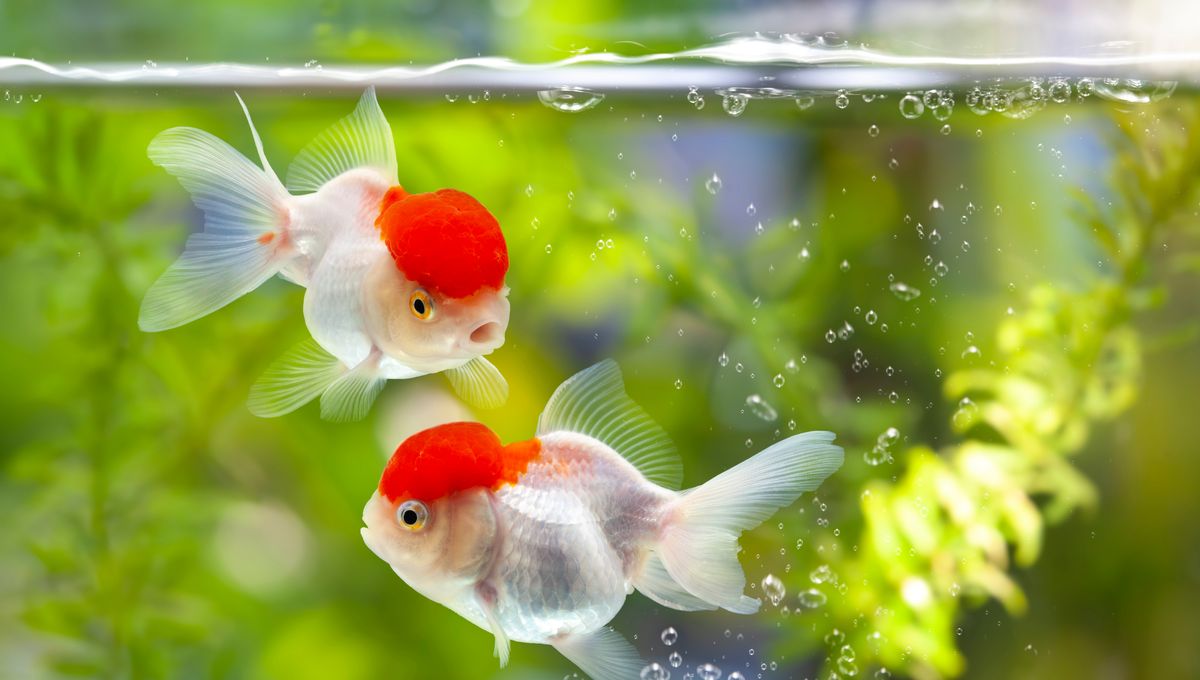
Despite their popularity, public knowledge of the brainy capabilities of goldfish (Carassius auratus) is limited. They are among the most popular freshwater aquarium fish species, and yet many people are unaware of their surprisingly sharp memories. So, if you think goldfish are just swimming around mindlessly, think again!
The common misconception is that goldfish have a memory that lasts just three seconds, but countless studies have proven that not only do they have memories spanning, weeks, months, and even years – they are also exceptional problem solvers and pretty good motorists.
First domesticated in China around 1,000 years ago, there are now over 125 breeds of goldfish. While they have an average lifespan of between 10 and 15 years, the oldest goldfish on record died aged 43 with a head full of memories (probably).
How smart are goldfish?
“We’ve known about the reasonably good memories of goldfish since the ’50s and ’60s,” Culum Brown, an expert in fish cognition at Macquarie University in Australia, told Live Science back in 2021. “Despite what everybody thinks, they’re actually really intelligent.”
Since research began looking into the intelligence and memory capacity of goldfish, findings have consistently suggested that they are capable of forming long-term memories, social learning, tool use, spatial awareness, and problem-solving.
In 1966, a study was conducted by researchers at the University of Michigan in which goldfish showed improved shock-avoidance behaviors in a number of trials lasting multiple days, providing evidence for short-term memory formation.
Anecdotal evidence suggests goldfish commonly remember the area of the tank they usually receive food from and will swim into position when feeding time comes. Similarly, they have been taught to escape nets and can even be taught to perform tricks.
A study conducted at Oxford University even found goldfish to have the surprising ability to accurately estimate distances – something even humans struggle to do. By training the fish to travel exactly 70 centimeters (2.3 feet) before turning around to receive a food reward, the researchers found they could consistently and accurately swim the 70-centimeter distance even when the starting point and stimuli were changed.
If you’re still not impressed by these tiny masterminds, one study event taught them how to drive a car. Watch the video to see them Fast and Furious their way around the lab.
Why do people think goldfish have a three-second memory?
One of the assumptions about fish stupidity can be put down to their relatively small brain size compared to other vertebrates. But brain size doesn’t always correlate with species intelligence.
Fish brains also differ from mammals as they don’t possess a hippocampus. The hippocampus in mammals works to form memories, so it was likely assumed that without one long-term memory would be affected. However, research has found that in fish the lateral pallium is the structure that functions to form connections between events and experiences.
This area in the forebrain of fish has the same evolutionary origin as the parts of the mammalian brain that support learning, and structures similar to ones that contribute to the formation of emotions (the amygdala) have also been found.
“I think the misconception comes, basically, from the fact that a lot of people — and I hope less and less — maintain fish in a circular bowl,” behavioral ecologist Adelaide Sibeaux, who researches navigation in animals at the University of Oxford, told Discover. “We haven’t been giving fish [the chance] to just show us how smart they are.”
The public perception of fish may also be as a result of mass cognitive dissonance. Believing goldfish have a three-second memory makes keeping them in a small, bare fish tank a lot less guilt-laden.
Do other fish have good memories?
It’s not just goldfish that have impressive cognitive abilities. Studies have been conducted on a wide variety of fresh and saltwater species and found unique and impressive capabilities in each of them.
African Cichlids, another commonly kept fresh-water species, have been found to form associations and remember them for up to 12 days, while studies into wild fish have shown memory retention of up to 11 months for negative experiences.
Zebrafish can understand quantities, and research into cleaner fish has shown that they can recognize their own faces in reflections.
A number of species have been shown to be capable of escaping mazes, and fish have been observed in the wild hunting together (moray eels and groupers), protecting each other from predators (sticklebacks and guppies), and cleaning other fish in exchange for not being eaten (cleaner wrasse).
Despite clear evidence in support of fish intelligence, they are still commonly mistreated both in the pet trade and in government policy.
Animal welfare charity The Humane League explains that “Fish currently suffer in greater numbers than any other vertebrate animal, as they are not only farmed in the greatest numbers but also experience serious welfare issues including disease, sea lice, and overcrowding on these farms.”
Currently, farmed fish are not generally included in laws – like the US’s Humane Slaughter Act – surrounding the ethical slaughter of livestock to spare avoidable suffering, leaving the roughly 124 billion fish farmed annually vulnerable to mistreatment and undue suffering.
Source Link: Do Goldfish Really Have A Three-Second Memory?